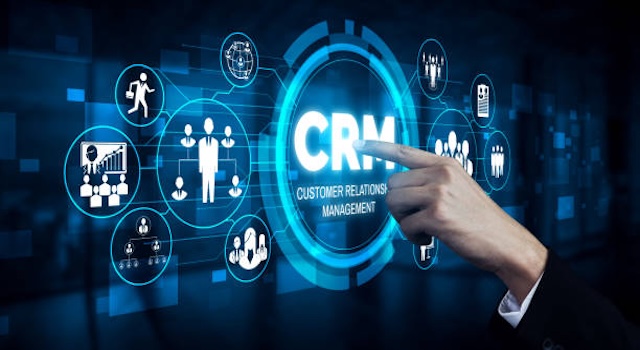CRM
Conversational CRM: Integrating Chatbots and Messaging to Boost Customer Engagement

Conversational CRM is transforming how companies connect with customers by combining the power of chatbots, messaging apps, and AI-driven assistants. Instead of static emails or forms, customers can now interact with businesses through natural conversations—via WhatsApp, SMS, web chat, or even voice.
What is conversational CRM?
Conversational CRM integrates messaging channels directly into the CRM system, enabling real-time, two-way communication between brands and customers. Every conversation—whether on chat, voice, or social media—is logged automatically in the CRM, creating a unified view of the customer journey.
Why conversational CRM matters
- Instant communication: 82% of consumers expect immediate responses from brands.
- Omnichannel engagement: Customers move fluidly between platforms—your CRM should too.
- Data-driven personalization: Every conversation enriches your CRM with behavioral insights.
- Scalability: AI chatbots allow 24/7 engagement without increasing headcount.
How chatbots integrate with CRM
- Lead capture and qualification: Chatbots ask qualifying questions and sync lead data to CRM automatically.
- Support ticket creation: Bots escalate issues to live agents with full context already logged.
- CRM data enrichment: Conversations update customer profiles in real-time with preferences and sentiment.
- Automated follow-ups: Bots trigger workflows—like sending quotes, booking demos, or confirming appointments.
Popular conversational channels in CRM
- Website live chat: Connects visitors directly with AI assistants or sales reps.
- Messaging apps: WhatsApp Business, Facebook Messenger, and WeChat integrated with CRM pipelines.
- Voice assistants: Alexa, Google Assistant, and custom IVR bots tied to CRM databases.
- Email-to-chat bridges: Convert traditional email support into real-time chat workflows.
Benefits of conversational CRM
- Improved customer experience: Faster, natural interactions increase satisfaction and loyalty.
- Higher conversion rates: Conversational forms outperform static landing pages by up to 3x.
- Reduced support costs: AI handles repetitive queries, freeing agents for complex issues.
- Deeper insights: CRM analytics reveal common questions, buyer intent, and customer sentiment.
AI and NLP powering conversational CRM
Natural Language Processing (NLP) allows bots to understand and respond contextually to customer messages. AI engines like Dialogflow, IBM Watson Assistant, and Microsoft Copilot enable smarter automation by learning from past interactions and CRM data.
Leading platforms for conversational CRM
- Salesforce Service Cloud + Einstein Bot: Unified AI chatbot with full CRM integration.
- HubSpot Conversations: Free messaging and chatbot builder connected to CRM and marketing tools.
- Zoho SalesIQ: Combines live chat, AI bots, and CRM analytics in one platform.
- Freshsales + Freddy AI: Automates lead qualification and ticket routing through chat interfaces.
- Drift: Conversational marketing platform focused on B2B sales acceleration.
Implementation roadmap
- Step 1: Identify your top customer interaction channels (web, WhatsApp, SMS, etc.).
- Step 2: Select a CRM platform with native conversational integrations or API flexibility.
- Step 3: Design conversational flows for FAQs, lead qualification, and upselling.
- Step 4: Integrate chat data with CRM analytics for personalized follow-ups.
- Step 5: Continuously train your AI models to improve accuracy and tone.
Metrics to measure conversational CRM success
- Response time: How quickly customers receive answers from bots or agents.
- Engagement rate: Percentage of visitors who interact via chat or messaging.
- Conversion rate: Number of leads or sales generated through chat interactions.
- Customer satisfaction (CSAT): Ratings collected post-conversation.
- Bot containment rate: % of issues resolved without human intervention.
SEO-friendly FAQs
What is conversational CRM? It’s the integration of chatbots, messaging apps, and voice assistants into CRM systems to enable real-time, two-way communication.
How does conversational CRM improve sales? By automating lead qualification and nurturing through natural, instant conversations.
Which CRM systems offer conversational AI? Salesforce, HubSpot, Zoho, and Freshsales all have AI chatbot capabilities.
Is conversational CRM suitable for small businesses? Yes—cloud-based tools make it affordable and easy to deploy at any scale.
Bottom line
Conversational CRM bridges the gap between customer data and customer dialogue. By integrating AI chatbots, voice assistants, and real-time messaging, businesses can create frictionless, human-like interactions that build loyalty, drive sales, and redefine customer engagement in the digital era.
]






